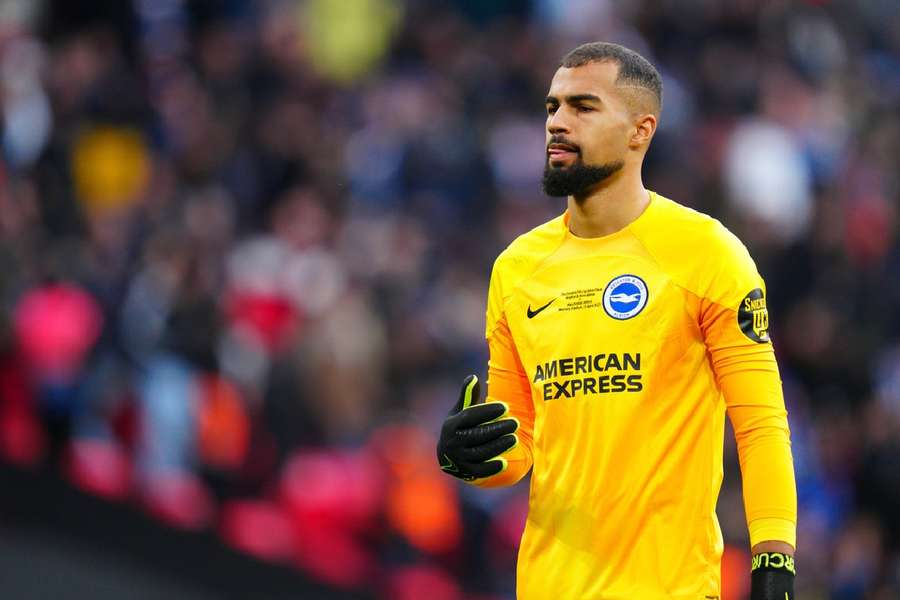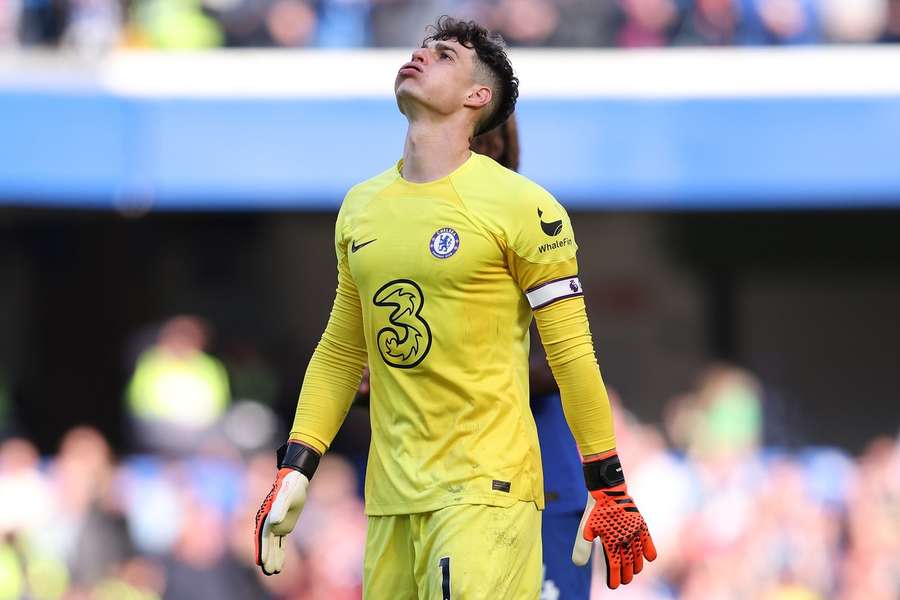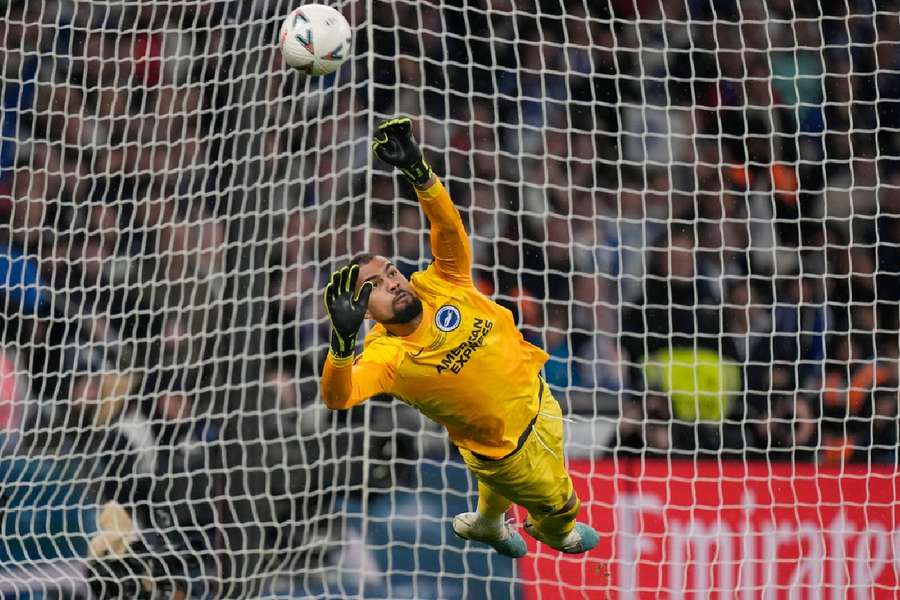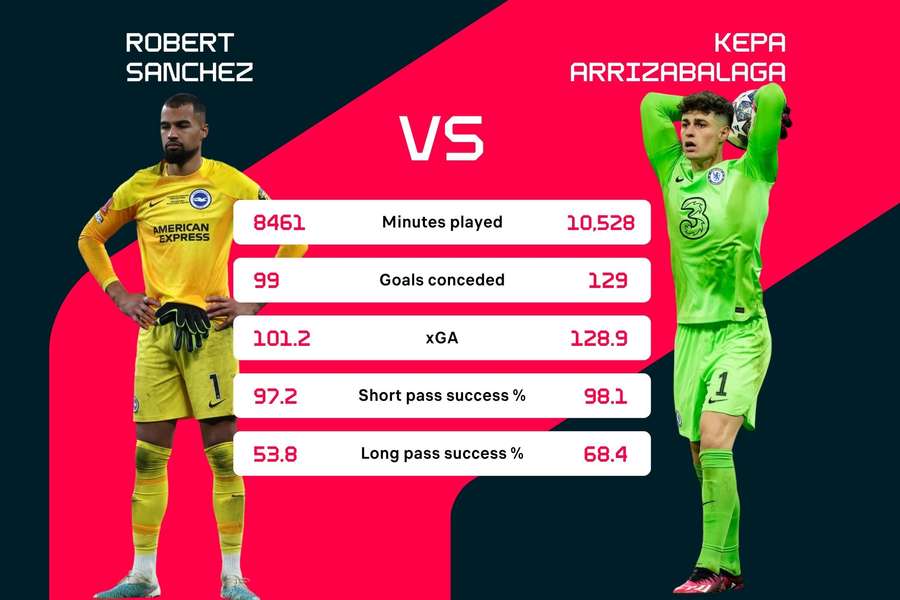Can Sanchez dislodge Kepa to become Chelsea's next number one?

This week, it was reported that Chelsea had reached an agreement to sign the Brighton goalkeeper for £20 million, plus a potential £5 million in add-ons.
Pochettino identified the goalkeeping department as an area that needed strengthening upon his arrival this summer, especially after selling Edouard Mendy to Saudi Arabian side Al Ahli and given that the club is set to loan American goalkeeper Gabriel Slonina to Belgian outfit KAS Eupen.
However, Chelsea hesitated to spend a significant portion of their summer budget on a new goalkeeper, with reinforcing areas like the midfield and attack seen as a more pressing priority. Sanchez was considered a viable and more affordable option and is well-regarded at Chelsea thanks to Ben Roberts, the head of the goalkeeping department at Cobham.
Roberts previously worked with Sanchez at Brighton and admires not only his ability to make big saves but also his comfort on the ball. This move will provide a fresh start for Sanchez, who lost his place last season to Jason Steele, the preferred choice of Brighton's manager, Roberto De Zerbi.
And many are predicting that he can quickly dislodge Kepa Arrizabalaga to become the club's new No.1, especially given Kepa's inconsistent track record.
Each of Maurizio Sarri, Frank Lampard, and Thomas Tuchel dropped Kepa at various stages of their tenures in charge at Chelsea, with the Spanish international only being granted a new lease of life under Graham Potter who reinstated him to his starting XI last season.
However, few see him as the long-term option for the Blues, which is why many are expecting Sanchez to go on and be his successor. Notably, both goalkeepers are familiar with each other from training together at international level with Spain, and this familiarity will contribute to an interesting competition between them.

With a total of 30, Sanchez did concede 15 fewer goals in all competitions last season compared to Kepa's 45, which would feed into the narrative that he can quickly displace Kepa. However, a closer look at the underlying numbers presents a different perspective regarding the form of both players.
Kepa accumulated 3789 minutes across all competitions while Sanchez played only 2480. During that time, Kepa accumulated an Expected Goals Against (xGA) of 54.19 according to Wyscout.
A reminder that xG is a metric that determines just how good a shooting opportunity is. It considers a range of factors, including the distance from the goal, the angle of the shot, the pace of the effort, how it was assisted, and what part of the body was used to hit the ball. This is done by utilising historical shot data.
The benefit of the same is that we are able to better analyze whether a goalkeeper should have conceded more or fewer goals based on the shots they faced. In Kepa's case, the model considers he should have conceded between 54-55 goals.

Therefore, his actual goals-against tally of 45 is rather impressive. In contrast, Sanchez accumulated an xGA of 25.32 last season but conceded 30 goals, meaning he underperformed by nearly five goals.
Exclusively in the Premier League, it's worth noting from the 28 goalkeepers who started five or more matches last season, only six had a worse performance against their xGA. Sanchez's performance from a shot-stopping perspective might go some way to explaining why De Zerbi opted to switch to Steele midway through the campaign.
We can make a wider comparison between the two by opening the sample to all Premier League minutes for both players across their respective careers so far. Again, Kepa has played more minutes at 10,528 while Sanchez has accumulated 8461.
The latter has conceded 99 goals from an xGA of 101.2 while Kepa has conceded 129 goals from an xGA of 128.94.

This highlights both have performed at a pretty similar level across a prolonged period, meaning there's no standout in terms of one being better than the other. They also demonstrate similarities in other crucial aspects, such as their distribution, which will be essential for their success under Pochettino.
Kepa had a short pass success rate of 98.1 percent during that time, while Sanchez's rate is 97.2 percent. Interestingly, Kepa had a higher success rate for long passes at 68.4 percent compared to Sanchez's 53.8 percent. However, this is unlikely to significantly influence Pochettino's thoughts.
Overall, the evidence suggests very little difference in quality between the two players. This is advantageous in cases of injuries or when squad rotation is necessary.
However, the idea that Sanchez is ready to immediately replace Kepa seems flawed, as Chelsea's current goalkeeper is in better form than his new competitor.



